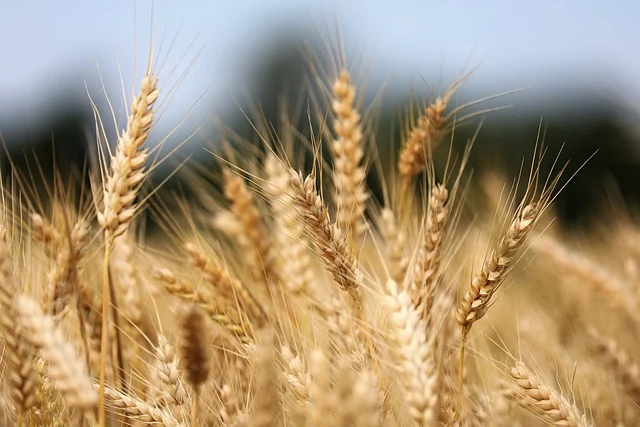If you own agricultural or farming property, you may be wondering whether an agricultural and farming trust is necessary. While it’s not mandatory, a trust can offer significant benefits in terms of asset protection, estate planning, and tax efficiency. In this article, we’ll explore the potential risks of not having a trust and the advantages it can provide.
Please click here to find out more about our Wills, Trusts and Lasting Power of Attorney Services.
Free Initial Telephone Discussion
For a free initial discussion on how we can help you deal with the legal implications of creating a Trust, get in touch with us today. We are also experienced in dealing with all aspects of Wills and Probate and we will review your situation and discuss the options open to you in a clear and approachable manner. Early expert legal assistance can help ensure you avoid the stress of dealing with these issues on your own. Simply call us on 0345 901 0445 or click here to make a free enquiry and a member of the team will get back to you.
Potential Risks of Not Having a Trust
- Lack of Control Over Asset Distribution: Without a trust, your estate will be distributed according to the laws of intestacy, which may not align with your wishes. This could result in unintended consequences, such as assets going to unexpected beneficiaries or being subject to probate delays.
- Exposure to Probate Costs: The probate process can be time-consuming and expensive. If you don’t have a trust, your estate may be subject to probate fees, which can significantly reduce the value of your assets.
- Vulnerability to Claims and Liabilities: Without a trust, your personal assets could be at risk if your farming business faces legal claims or liabilities. A trust can provide a layer of protection by shielding your personal assets from creditors.
- Limited Flexibility in Estate Planning: A trust offers greater flexibility in estate planning compared to a will. You can specify how and when assets will be distributed, and you can appoint trustees to manage the trust according to your wishes.
- Potential Tax Implications: Depending on your circumstances, not having a trust could result in higher taxes. A well-structured trust can help you minimize your tax liability and pass on your assets to future generations more efficiently.
Benefits of an Agricultural and Farming Trust
- Asset Protection: A trust can protect your assets from creditors, lawsuits, and other potential threats. This is particularly important for farmers who face risks such as crop failures, market fluctuations, and regulatory changes.
- Estate Planning: A trust allows you to control how your assets will be distributed after your death, ensuring that your wishes are carried out. You can also specify who will manage your assets and make decisions on behalf of your beneficiaries.
- Tax Efficiency: A well-structured trust can help you reduce your overall tax burden. This can be achieved through strategies such as minimizing capital gains tax, estate tax, and income tax.
- Succession Planning: A trust can facilitate a smooth transition of ownership to the next generation. This can help to maintain the continuity of your farming operation and avoid family disputes.
- Long-Term Financial Security: By establishing a trust, you can provide for your family’s financial security for generations to come. This can help to ensure that your farming legacy continues.
Key Considerations for Creating a Trust
- Trust Deed: A trust deed is a legal document that outlines the terms and conditions of the trust. It should be carefully drafted to reflect your specific goals and circumstances.
- Trustees: You will need to appoint trustees to manage the trust. Choose individuals who are trustworthy, reliable, and capable of handling your financial affairs.
- Beneficiaries: Identify who will benefit from the trust. This could include your children, grandchildren, or charitable organizations.
- Asset Allocation: Decide how your assets will be allocated within the trust. Consider factors such as your financial goals, risk tolerance, and the specific needs of your beneficiaries.
- Tax Implications: Consult with a tax advisor to understand the potential tax implications of creating a trust.
Conclusion
While not having an agricultural and farming trust may seem like a simpler option, it can expose you to significant risks. By understanding the potential benefits and drawbacks, you can make an informed decision about whether a trust is right for you.
How we can help
We have a proven track-record of helping clients create Trusts. We are a multidisciplinary firm and have all the expertise inhouse to satisfy the most exacting requirements of our clients. We will guide you through all the necessary legal due diligence in a comprehensive and timely manner. We firmly believe that with the right solicitors by your side, the entire process will seem more manageable and far less daunting.
How to Contact Our Wills and Probate Solicitors
It is important for you to be well informed about the issues and possible implications of creating a Trust. However, expert legal support is crucial in terms of ensuring your wishes are met as you would want them to be.
To speak to our Wills and Probate solicitors today, simply call us on 0345 901 0445, or click here to make a free enquiry. We are well known across the country and can assist wherever you are based. We also have offices based in Cheshire and London.
Disclaimer: This article provides general information only and does not constitute legal advice on any individual circumstances.



